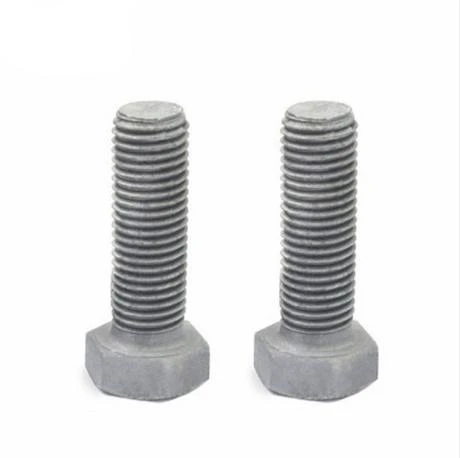

Understanding the Importance of Structural Steel Bolts in Construction Applications
Déc . 06, 2024 08:30 Back to list
Understanding the Importance of Structural Steel Bolts in Construction Applications
Understanding Structural Steel Bolts A Key Component in Construction
Structural steel bolts are essential fasteners used in construction and engineering to join steel components and ensure the stability and safety of various structures. They are particularly important in buildings, bridges, and other infrastructures that require robust connections to withstand dynamic loads and environmental factors. This article delves into the types, applications, and considerations associated with structural steel bolts.
Types of Structural Steel Bolts
Structural steel bolts come in several varieties, each designed for specific functions and conditions. The two primary types are bolts and nuts, and they are typically categorized as follows
1. Heavy Hex Bolts These are characterized by their larger head and body, which provides greater load-bearing capacity. Heavy hex bolts are often used in situations where high strength is necessary, such as in bridge construction and heavy machinery assemblies.
2. Anchor Bolts Used to anchor structures to concrete, these bolts maintain stability and resist uplift and lateral forces. Anchor bolts are critical in securing columns and other structural components against shifting and displacement.
3. Tension Control Bolts These fasteners are utilized in high-strength connections and offer a reliable method of controlling tension during installation. They ensure that the bolt's tension reaches an optimal value, enhancing the structural integrity of the connection.
4. Structural Stainless Steel Bolts For environments prone to corrosion, such as coastal areas or chemical plants, stainless steel bolts are used. They resist rust and degradation, ensuring long-lasting performance.
Applications in Construction
The applications of structural steel bolts span various sectors, including residential, commercial, and industrial construction. Here are a few notable uses
structural steel bolts

- Buildings In skyscrapers and other large buildings, structural bolts connect beams, columns, and girders. They play a crucial role in maintaining stability and transferring loads throughout the structure. - Bridges Structural steel bolts are vital in bridge construction, where they help secure beams and trusses. Bridges must be designed to handle significant loads, and high-strength bolts are instrumental in achieving this.
- Industrial Facilities Factories and plants often require heavy machinery installation, where structural bolts secure equipment and supports, ensuring safety and reliability during operations.
Considerations in Selection and Installation
When choosing structural steel bolts, several factors must be taken into consideration
1. Material and Coating The material of the bolt directly affects its strength, corrosion resistance, and overall durability. Depending on the environment, bolts may be galvanized or coated to enhance their lifespan.
2. Load Requirements Engineers must calculate the loads that the bolts will bear to select the appropriate size and grade. Using insufficiently rated bolts can lead to structural failures.
3. Installation Techniques Proper installation is crucial for the performance of structural steel bolts. Correct torque specifications and tension control methods must be followed to ensure connections are secure and meet safety standards.
4. Inspection and Maintenance Regular inspection of bolts and connections is essential to identify signs of wear, corrosion, or loosening. Maintenance practices help prolong the life of the bolts and the overall structural integrity.
Conclusion
Structural steel bolts are undisputedly a critical component in the construction industry, playing a vital role in ensuring the safety, stability, and functionality of various structures. Understanding the different types of bolts, their applications, and the considerations for selection and installation can help engineers and builders make informed decisions, ultimately leading to more durable and reliable constructions. As the construction industry continues to evolve, ongoing innovation in bolt design and materials promises to enhance their performance and efficiency, catering to the ever-growing demands of modern engineering.
Latest news
-
Premium Self Tapping Metal Screws: Strong & Easy Install
NewsAug.02,2025
-
Premium Fasteners Manufacturer | AI-Driven Solutions
NewsAug.01,2025
-
Hot Dip Galvanized Bolts - Hebei Longze | High Strength, Corrosion Resistance
NewsAug.01,2025
-
High-Strength Hot Dip Galvanized Bolts - LongZe | Corrosion Resistance, Custom Sizes
NewsAug.01,2025
-
Best Self Tapping Screws for Drywall - Fast & Secure Installation
NewsJul.31,2025
-
High-Strength Hot Dip Galvanized Bolts-Hebei Longze|Corrosion Resistance&Customization
NewsJul.31,2025

